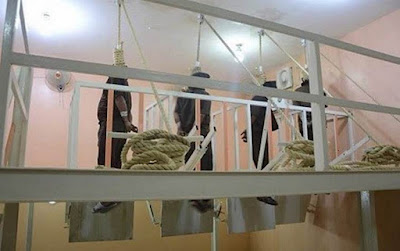The state of Arizona has eliminated its use of the sedative midazolam as one of the drugs it relies on in carrying out executions.
Lawyers for the state said in a court filing Friday that its current supply of midazolam expired on May 31 and that Arizona's sources of the drug have dried up because of pressure from opponents of the death penalty.
That leaves Arizona with other lethal-drug combinations, but the state's lawyers said they can't currently carry out executions because it has no access to supplies of pentobarbital and sodium thiopental.
The status of the state's lethal-injection drug supplies were revealed Friday in a court filing in a lawsuit that challenges the way Arizona carries out the death penalty.
Executions in Arizona were put on hold after the July 2014 death of convicted killer Joseph Rudolph Wood, who was given 15 doses of midazolam and a painkiller and who took nearly 2 hours to die. His attorney says the execution was botched.
Executions in Arizona remain on hold until the lawsuit is resolved.
A ruling last month by U.S. District Judge Neil Wake dismissed parts of the lawsuit, but other elements of the case remain alive.
The state argued in its filing Friday that the lawsuit is moot now that midazolam is off the table.
Dale Baich, one of the attorneys representing death row prisoners, said that even if the lawsuit's claims involving lethal-injection drugs are dismissed, his clients still have claims that Arizona Department of Corrections Director Charles Ryan has abused his discretion in the methods and amounts of the drugs used in past executions.
"It's our belief that the unlimited discretion that the director has during the execution process violates the Eighth Amendment," which forbids cruel and unusual punishment, Baich said.
Similar challenges to the death penalty are playing out in other parts of the country that seek more transparency about where states get their execution drugs.
States are struggling to obtain execution drugs because European pharmaceutical companies began blocking the use of their products for lethal injections. Death penalty states refuse to disclose the sources of their drugs, though the sources are widely believed to be compounding pharmacies - organizations that make drugs tailored to the needs of a specific client. Those pharmacies do not face the same approval process or testing standards of larger pharmaceutical companies.
Source: Associated Press, June 24, 2016


.jpg)







